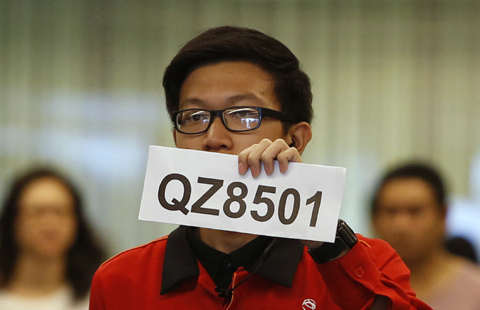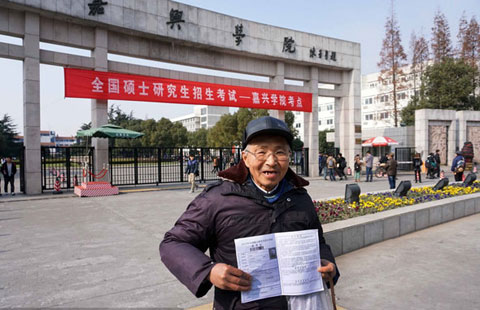China, Brazil seek more business cooperation
Updated: 2014-12-29 04:14
By HUA SHENGDUN in Washington(China Daily USA)
|
||||||||
The rebalancing of China's economy should present opportunities for growth in Latin America's manufactured exports, given the anticipated strengthening of the renminbi and a rise in domestic wages and consumption.
"Such efforts should enable Brazil, as well as Latin America, to benefit further from its economic and financial links with China over time," Anthony Elson, adjunct professor of international economics at the Johns Hopkins University, told China Daily.
Brazil's economy is forecast to grow 1 percent in 2015, compared with the 0.3 percent estimated for this year, according to a report by the Brazilian National Confederation of Industry.
The group said on Dec 17 that restoring confidence in economic policies and enhancing competitiveness is essential for the country.
These gains and the attendant growth in export volumes provided "a significant boost to the region's real GDP and income growth over that of the preceding decade", said Elson. He said that bilateral trade is also asymmetrical in that "China is a much more important trading partner for Latin America than the other way around."
"China-Brazil relations will continue to grow under Brazilian President Dilma Rousseff's next presidency," he said.
During Chinese President Xi Jinping's visit to Latin America in July, he described bilateral relations as a "shared destiny".
China and Brazil are living up to that role, Elson said.
Rousseff, the newly re-elected president of a country with the world's seventh-largest economy, welcomed Xi during his visit to Brazil and met him again four months later at the G20 summit in Brisbane, Australia.
The two countries' presidents recently exchanged congratulatory messages on the successful launch of China and Brazil's jointly developed Chinese Long March-4B rocket at the Taiyuan satellite launch center in China on Dec 7.
Ties between the two countries parallel the long-term interests both have in strengthening relations among the BRICS countries - Brazil, Russia, India, China, and South Africa - and countries in the Southern Hemisphere, Elson said.
"There are mutual benefits that shall be pursued by both sides, since China has been very much eager to help the Brazilian government with investments and more co-operation," Otaviano Canuto, senior adviser on BRICS in the development economics department of the World Bank, told China Daily.
The importance of the growing South-South relationship for China and Brazil was also demonstrated during Xi's visit when new lending agreements by the BRICS alliance for developing economies were signed in Fortaleza, Brazil.
Though Brazil's economy is stagnant, bilateral trade between China and Brazil soared to $60 billion in the first eight months of this year, an increase of 2.5 percent compared with last year, making China the South American nation's largest trade partner.
Both countries have called for more joint efforts on multilateral agreements to promote solidarity and cooperation to enhance the strategic partnership, according to a November 2014 report issued by the Chinese Embassy in the United States.
Xi announced $35 billion in new lending for infrastructure projects in Latin America during his visit to the region, with one project a transnational railway in South America that is under discussion among China, Brazil and Peru.
There is growing potential in trade between China and Brazil similar to other Latin American countries, because exports to China are almost entirely commodities, including hydrocarbons, copper, iron ore and soybeans, while manufactured goods are the bulk of China's exports to the region.
High transportation costs compared with markets in the Western Hemisphere, and strict import rules in China restrained Latin American exports of manufactured goods to China, Elson said.

 Where did you go flight QZ8501
Where did you go flight QZ8501
 Trending across China: Never too old to learn
Trending across China: Never too old to learn
 Cartoons capture 10 major China stories of 2014
Cartoons capture 10 major China stories of 2014
 China's first 'bullet train ambulance' unveiled
China's first 'bullet train ambulance' unveiled
 Students sit for artistic future
Students sit for artistic future
 Thirsty Beijing receives water from the south
Thirsty Beijing receives water from the south
 A day with new consul general in San Francisco
A day with new consul general in San Francisco
 Chinese dancer joins Nutcracker
Chinese dancer joins Nutcracker
Most Viewed
Editor's Picks

|

|

|

|

|

|
Today's Top News
China-Latin America relations strengthened in 2014
SCH chairman sees bright future in Brazil
Live report: AirAsia flight goes missing
AirAsia plane with 162 on board missing in Indonesia
Backgrounder: Major air accidents in recent years
DPRK Internet, 3G mobile network suffer 2nd outage
China's small schools go digital
Louis Vuitton belt brings down Chinese official
US Weekly

|

|







